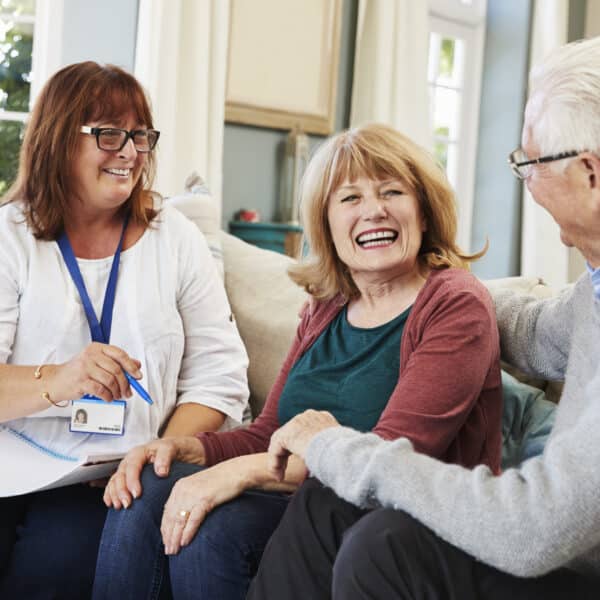
When a new resident arrives it has become standard practice now for the family care-givers and perhaps close friends to be involved in the initial assessment and completion of all the relevant care plans and forms. They are invaluable to provide background information, contact details, medical history and general likes and dislikes. This goes some way to helping staff to understand the new resident and to help them settle into their new environment. But with all the paperwork that is required to be completed, boxes to be ticked and endless signatures, the whole process can become rushed and impersonal. The therapeutic benefits of getting partners, wider family and friends on board as part of the team can be overlooked.
The family member who is used to providing all the care can suddenly feel redundant and bewildered. They used to be the expert. They perceive that they no longer have a role and don’t quite know how to deal with this. It is a highly anxious and emotional time. The family care-givers can become quite defensive, possibly hostile to suggestions and criticising the care provided. Or, sadly, as they no longer know what to do they just disappear and ‘leave it to the “experts”’.
It is easy to think that we are taking away the stress or “burden” for the family care-giver. We say things like “There’s no need to worry, we will take good care of him/her”, “we have seen it all before” but put yourself in the now redundant care-givers shoes. Imagine you have been caring for your other half for the past 40 years. You know everything about them. You know their strange toilet habits, their favourite food, the things that make them laugh or irritate them. You know that when they say “b***er off!” it is meant as a term of affection. How could anybody else know all that? So we shouldn’t be taking over from the family care-givers, it should be made clear from the onset that they are an important part of the team and their input is valuable.
Evidence shows that family care-givers appreciate attempts by care staff to create these partnerships. To have their knowledge and experience recognised provides reassurance and comfort to them and it also makes the care staff’s job a whole lot easier.
Of course they need to understand your role too. They need to appreciate the routines and constraints of the establishment and learn where they can fit into this to enhance the person-centred care that we all strive to provide. I’m not pretending this is easy. Family dynamics are often complicated and conflicts inevitably occur. There can be a lot of criticism unfairly aimed at care staff for seemingly not meeting residents needs. A healthy relationship with family care-givers from the start can improve this significantly. It is time consuming in the beginning but the rewards later for the care staff, resident and family and friends make it well worth the effort.
Look out for my next Insight on how to engage family care-givers with activities and care.





